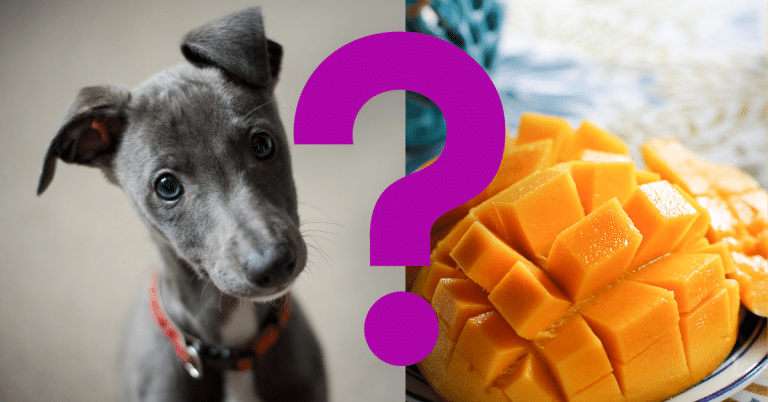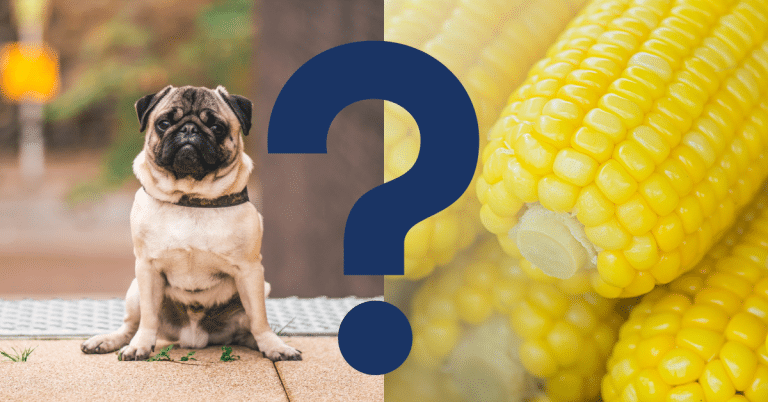Can Dogs Eat Plums? A Vet’s Opinion

Peaches, nectarines, and apricots are all members of the same fruit family as plums. The plum fruit has a ball-like appearance and is various shades of green, red, purple, and yellow. But can you feed plums to your dog?
Dogs can eat plums, but only with care. Although the pits of plums should be removed because they can be a choking hazard and contain cyanide, which is deadly to dogs, plums are acceptable for dogs to eat in small amounts. Ripe plums are usually safe to eat, but it’s vital to remove the pit and limit how much you give your dog because too much could upset its stomach. Before adding any new food to your dog’s diet, always check with your veterinarian to be sure it is secure and suitable for their requirements.
Benefits Of Plum For Dogs
Plums can be a healthy supplement to a dog’s diet if offered in moderation. The following are some possible advantages of plums for dogs:
Nutritional Content
Plums are a good source of potassium, fibre, antioxidants, vitamins A, C, and K, and other nutrients, including fibre and potassium. These vitamins and minerals can help your dog’s immune system and general wellness.
Hydration
Plums’ high water content can help your dog stay hydrated, particularly in warmer weather or after exercise.
Digestive Health
The fibre in plums helps support regular bowel motions and aid with digestion in dogs, preventing constipation.
Antioxidant Properties
Plums offer anti-inflammatory and antioxidant effects. Antioxidants like phenols and anthocyanins in plums can help shield your dog’s cells from oxidative damage.
Dental Health
Chewing on the flesh of plum can help dogs maintain good dental health by preventing plaque development on their teeth and increasing salivation, which can help to clean their mouths and improve their breath.
It’s crucial to remember that dogs should only be given plums in moderation and under supervision. Since the pits can be a choking hazard and contain cyanide, poisonous to dogs, they should be removed. Additionally, some dogs can have an allergy to plums or have trouble digesting them. Before introducing new food to your dog’s diet, always consult your veterinarian.

How To Safely Give Plums To Dogs
The measures below should be followed if you wish to feed plums to your dog securely:
Pick Ripe Plums
Ensure the plums you give your dog are ripe and aren’t too mushy or spoilt. Unripe plums may be more challenging to digest and may upset your stomach.
Remove The Pit
The pit of the plum should be removed as it contains cyanide, which is harmful to dogs and presents a choking hazard. Gently twist the plum after cutting it in half to separate the two parts. The pit can then be carefully removed using a knife or your fingers.
Feed Sparingly
Dogs should only get sparing amounts of plums. Dogs overeating fruit, including plums, may have diarrhoea and intestinal problems. Generally, treats and fruits shouldn’t account for more than 10% of your dog’s daily caloric intake.
Watch Out For Any Adverse Effects
Watch out for any adverse effects your dog may have after eating plums, such as vomiting, diarrhoea, or behavioural changes. Stop feeding plums if you experience strange symptoms, and then go to your veterinarian.
Think About Other Options
It is best to see your veterinarian for customised advice if you have any questions regarding feeding plums to dogs or if your dog has any health issues. Your veterinarian may suggest substituting safer fruits or treats for your dog’s requirements.
Remember that every dog is unique, and some dogs may react negatively to specific foods, including plums. Before adding any new food to your dog’s diet, always check with your veterinarian to be sure it is secure and suitable for their particular health and dietary needs.
Will Plum Make A Dog Sick?
While eating plums in moderation is generally harmless for dogs, overindulging or eating the pits may put a dog at risk of becoming ill. The cyanide found in plum pits is toxic to dogs and can result in symptoms like vomiting, diarrhoea, abdominal pain, trouble breathing, and in severe cases, even death. Furthermore, certain dogs can have trouble digesting plums or might be allergic to them, adversely affecting the digestive system.
To lower the risk of choking and to keep an eye out for any negative responses in your dog, it’s crucial to permanently remove the pit and serve plum flesh in small, bite-sized pieces. Discontinue giving plums to your dog and seek advice from your veterinarian if you detect any strange symptoms, such as vomiting, diarrhoea, or behavioural problems, after your dog has eaten plums. As each dog is unique, it is best to speak with your veterinarian to receive personalised advice on your dog’s diet and any possible hazards of giving him plums or other novel food.
Can dogs eat plum variations?
The safety of dogs eating other plums depends on the particular plum and how it is prepared. Dogs can consume some plums, such as black, red, or yellow, in moderation if the pits are removed, and the food is given to them in little, bite-sized pieces. However, it’s crucial always to be cautious and adhere to recommended feeding practices.
Other plum varieties exist, including Japanese, Chinese, and wild varieties, which may differ in taste, texture, and nutritional value. Before giving your dog any particular plum variation, ensure it is safe and suitable for their needs by researching with your veterinarian.
Certain plum varieties, such as plum cakes or pies, may contain additional elements harmful to dogs, such as sugar or spices. When giving plums to your dog, always choose primary, fresh varieties without additional sugar, spices, or other potentially dangerous components.

Vet’s Summary
Plums can be safe to eat in moderation if the pits are removed, and the fruit is served to dogs in little, bite-sized pieces. However, care should be used while feeding different plums because they may have varying properties and nutritional value. Before giving a dog any specific plum variation, it’s crucial to conduct your homework, speak with a veterinarian, and steer clear of any plum varieties that have added sugars or spices.
It’s crucial to use moderation and adhere to correct feeding instructions if you’re thinking of giving your dog plums or variations of plums. Additionally, if your dog has a sensitive stomach or is prone to digestive problems, it would be advantageous to consider including a probiotic supplement in its diet, given the potential digestive benefits of probiotics for dogs. Probiotics can support balanced gut flora and improve canine digestive health. Before beginning any new supplements for your dog, it is, however, essential to speak with your veterinarian. They may make tailored recommendations based on your dog’s particular health and nutritional requirements.
Videos To Watch
If you are wondering what related foods are good to give your dog, watch this:
And if you want to know what a dog can NOT eat, watch this:






